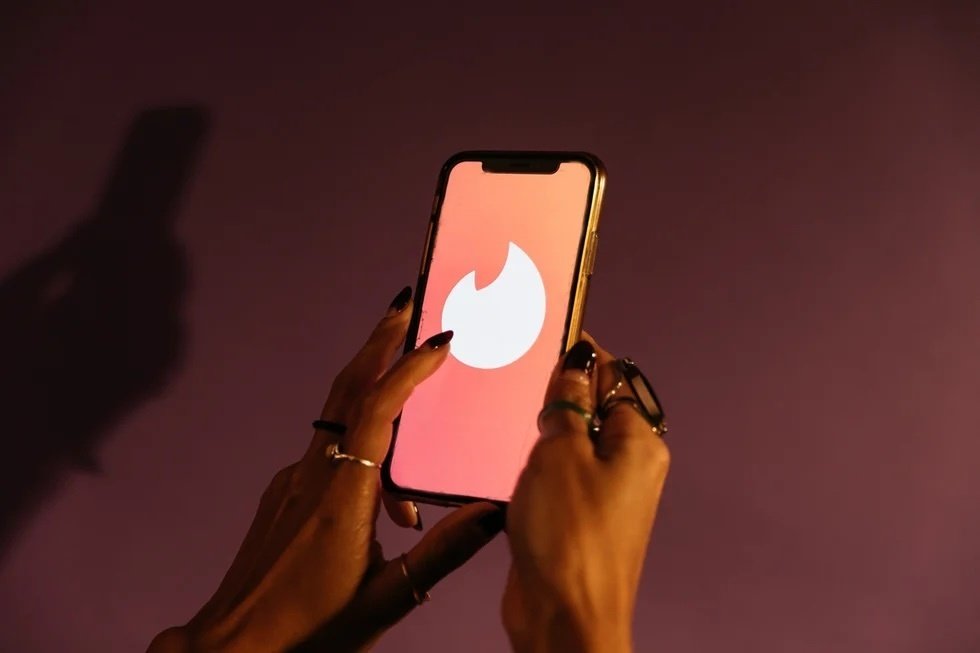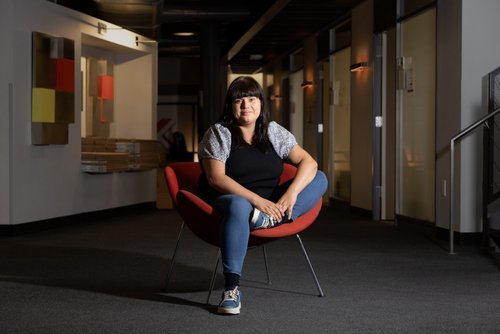Swipe right for success: Using dating apps to job hunt and network
Jan 30, 2024
5 mins


Freelance journalist and writer
In a world with apps designed for every aspect of life, from monitoring meals to finding dog sitters, local hiking buddies, friends, or dates, a new app trend has emerged—mixing dating apps with networking to land a job. This unconventional approach to job hunting, which has been around longer than you might think, has recently gained widespread attention, with media outlets like The Wall Street Journal, Vice, and Fortune covering this phenomenon.
After all, “What do you do?” is usually one of the first questions one would ask on a date anyway—and certain people just leverage it a little more than others. But does this approach really work? What can you get out of it? Do the benefits outweigh the risks? In this article, we explore this trend with the help of Renee Conklin, founder of RC HR Consulting, and Carrie Prince, an online dating mentor from You Can Date Better.
The beginnings
The concept of blending job hunting and dating emerged almost a decade ago, and apps swiftly caught on. It all started with Shapr, created in 2014 and launched in October 2016 by Ludovic Huraux, the mind behind the dating site Attractive World. The idea for Shapr was innovative yet simple—it functions like Tinder, but for your job—and gained rapid interest, now boasting 1.5 million users across the US, the UK, and France.
But there’s more to the tale. Shortly after, dating apps themselves also entered the professional arena. One of them was Bumble, founded in 2011 by Whitney Wolfe Herd (a Tinder co-founder) who added their ‘Bizz’ feature in October 2017. The addition allowed users to construct a dedicated skills section and a portfolio, offering a platform to showcase their work before initiating a match.
Since then, Bumble has accumulated 17 million new matches every week, with 64,000 daily users in the US, Canada, the UK, France, and Germany. Fast forward to 2019, and there’s a special feature called ‘Women in Bizz,’ allowing female users to connect exclusively with other women for business.
And what about 2024? As this distinctive blend of dating and job apps continues to grow, it seems it might not just be a passing trend but a shift towards a different approach to building professional connections.
Why dating apps?
Navigating the job market proved exceptionally challenging in 2023, with widespread layoffs in sectors that experienced overexpansion during the pandemic (such as tech) that resulted in intensified competition between candidates. “That’s why job hunters are doing whatever they can to try to find a creative way to network, stand out, and identify opportunities,” says Conklin. “Many of them feel that they have exhausted all of the traditional paths and may see dating apps as a different channel to tap into people they wouldn’t otherwise find on other platforms.”
“Any popular social platform is going to be exploited for uses beyond its original intention,” adds Prince. Dating apps, in particular, offer a unique advantage by providing a wealth of information about individuals, typically for free and in a more relaxed manner—details ranging from location and marital status to education level, interests, political views, and more. “It’s a gold mine for finding a customer, a boss, or a colleague.”
Dating apps also tend to be much more informal, allowing for more relaxed connections that might organically lead to job recommendations or an expanded professional network. “People are slightly less guarded and more willing to make a connection on a dating app,” says Conklin. “But it’s important to make your intention clear from the get-go—i.e. for professional networking instead of love and relationships.”
Successful …
How effective is this method, anyway? “The effectiveness is anecdotal at best, with as many success tales as horror stories,” says Conklin.
Positive experiences often involve forging valuable business contacts or connecting with a helpful stranger willing to pass on a resume to the hiring manager. Take, for instance, the viral story from the beginning of last year, where a Twitter user who matched with a startup’s HR worker on Bumble landed a job there after developing a personal connection first and then leading the conversation toward employment.
In general, if you live in a community dominated by one industry (say, San Francisco for tech), using dating apps to connect with professionals in your field—or from a company you’re interested in—might be more effective than regular job hunting. Once you establish a personal connection, sharing insider information and job openings becomes more accessible.
Such industries with a more modern mindset may also be more open to innovative networking, like through dating apps, making this approach potentially more successful than traditional methods. “After all, dating and looking for a job have a lot of similarities; one of which is to be really vulnerable and put yourself out there,” says Conklin.
… or risky?
But there are also many risks to this game. Firstly, the growing use of dating apps in recruitment and networking brings heightened security concerns. If individuals leveraging these apps for networking fail to exercise caution in sharing information on their profiles, the often highly private details can be exploited in harmful ways. In fact, one in six people on dating apps say they have been the victim of doxing, the act of sharing personal information about an individual or organization online without consent.
The abundance of personal information also presents increased opportunities for scammers to strike. “I myself [have] heard of horror stories typically involving people being sucked into cryptocurrency scams or quickly jumping into a relationship with a slightly-too-good-looking stranger who turns out to be a scammer,” says Conklin.
Thirdly, there’s a significant risk of misleading and potentially harming someone on the other side of the dating app seeking a genuine romantic connection—which might result in implications extending beyond emotional damage. “With dating app regulations becoming increasingly strict, engaging in such behavior could have serious repercussions, such as being reported or banned from the app,” says Prince.
Let’s talk about ethics
Ethically speaking, people using dating apps to job hunt or network professionally instead of dating should disclose it as soon as possible—not only for their own peace of mind but also to avoid appearing disingenuous to the other party. “The most important part to connecting professionally on a dating site is to make your intention clear right away so the other person doesn’t feel that you are trying to swindle them,” says Conklin.
“The dating space is just too vulnerable a place to mess with people’s emotions. That’s why I think this method is frankly unethical,” explains Prince. Adding more disingenuous users will only leave those who are there for the original intention of dating apps more frustrated and confused.
“I’m fine with professional networking and dating being mixed if that’s marketed clearly to begin with—it’s about user consent,” Prince continues. “I could imagine new apps that take socializing in that way to new levels, but we already have plenty of platforms where that’s possible.”
So, is it worth it?
Both of our experts share the common belief that using dating apps for job hunting and networking might not be the most effective strategy, despite some job seekers reporting success with it.
“Dating apps are there for a specific purpose … dating!” says Conklin. “Most of the people on dating apps are looking for love, not a job. That’s why they may be a bit put off when someone tries to connect with them because of where they work, their job title, or their professional specialization.”
Prince echoes this sentiment: “I would never endorse purposeful networking on the apps, or using a romantic premise for something else when there is no authentic intention for dating,” she says. “It’s just terribly manipulative. If networking happens accidentally, cool! But to go on there with the intention of finding a job? No way.”
Photo: Welcome to the Jungle
Follow Welcome to the Jungle on Facebook, LinkedIn, and Instagram, and subscribe to our newsletter to get our latest articles every week!

More inspiration: Follow hiring trends

Hilke Schellmann exposes the flaws in AI that control your next job offer
AI tools promise fairness in hiring but often fail. Hilke Schellmann reveals how these flawed systems shape careers and why transparency is crucial.
Dec 23, 2024

How AI coaching can give young job hunters an edge
Considering a career coach but don't have the resources to pay for one? AI might be able to help.
Dec 12, 2024

Are internships replacing entry-level jobs?
If an entry-level role requires years of experience, young job hunters are already at a disadvantage …
Mar 06, 2024

Job search in 2024: A candid look at the US job market
Are layoffs coming to an end? Will you finally land a job in your dream industry? Let’s see what the market has in store …
Jan 22, 2024

CEO seeks organized Taurus: China’s crazy recruitment criteria
If you’re not astrologically compatible, the job is not for you.
Dec 14, 2023
The newsletter that does the job
Want to keep up with the latest articles? Twice a week you can receive stories, jobs, and tips in your inbox.

Looking for your next job?
Over 200,000 people have found a job with Welcome to the Jungle.
Explore jobs